
- Lately I find myself around a bit generalized about what we have every right. Is it related to consumption? You will also have it in class. In short, money. We list among our friends our endless rights, less remembered by the obligations and forgotten that fundamental rights invade us. Where and in Europe. If it were in black Africa, perhaps in the third world… And in the meantime, we have forgotten torture, the lack of freedom of expression or linguistic rights, as we have forgotten our right to health and free movement on the net.
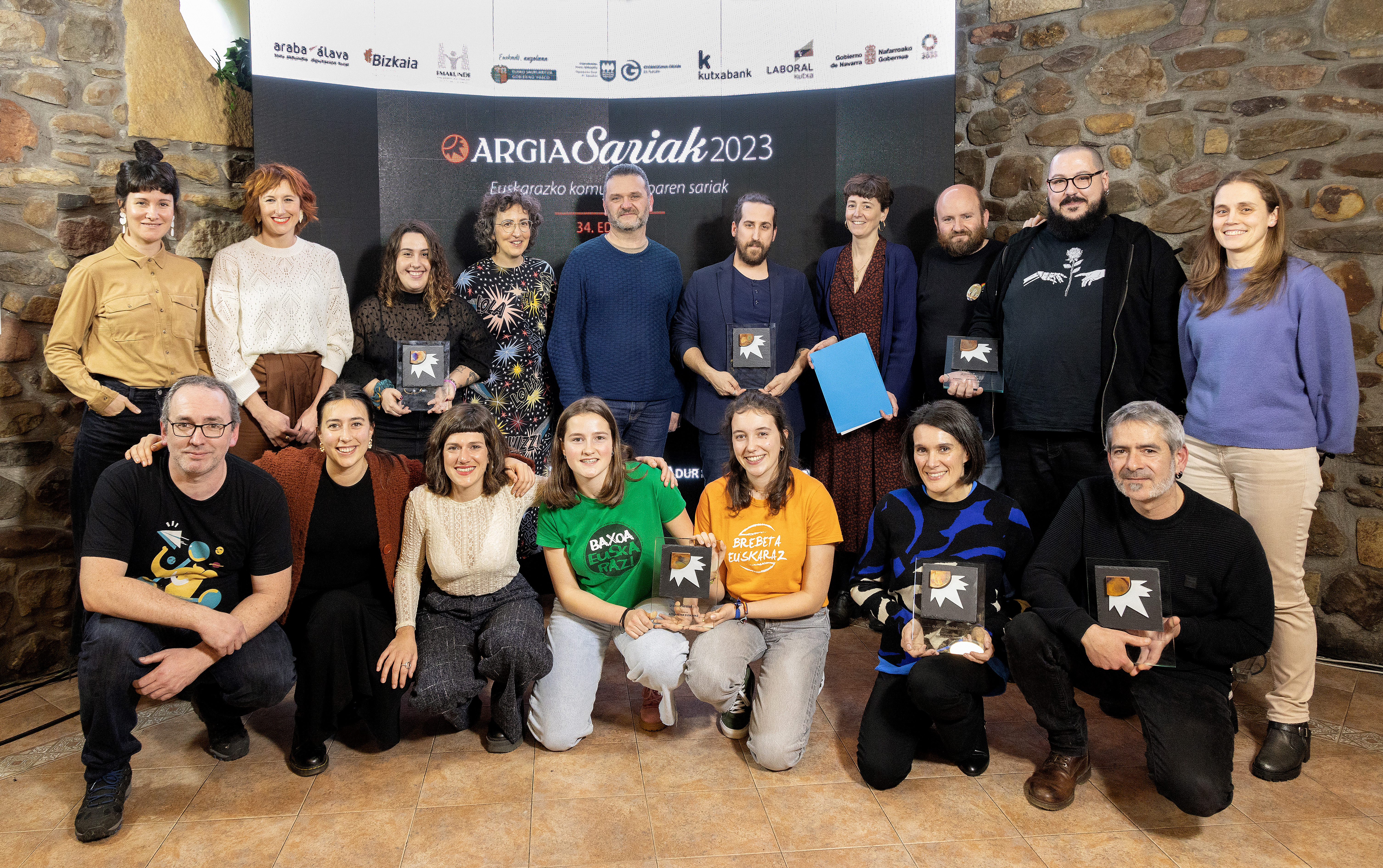
However, there are those who are fighting oblivion, and this year’s Argia Awards have that tone, or rather that thread could be the one that unites them. From the oppression that the one who is transmitting values in the daily graphic strip can denounce to the documentary that will make public the systematic torture suffered by eleven people in the Basque Country. Take the cancer out of the imagination of a woman fighting pink scarves and break the disease with the taboos we have in reality, from the podcasts that put the disease on the table, to the emeritus of her partner for doing journalism in Poland. And of the students who are working to get the tests done in Basque, even those who create platforms that can be free on the net and that are not within the reach of the rich.
Audiovisual: Blue Folders
While official truths are counted through superproductions, there is a risk of secretly stifling the tragedy of a people if we do not count it. Through this audiovisual media, work has been done to bring to light the issue of thousands of tortured Basque citizens who have been victims of state violence and who have no objection. “In 2016 I had the opportunity to attend the presentation and reading sessions of the report of the Basque Institute of Criminology on cases of torture at the CAV from 1960 to 2015, and I thought it marked the beginning of an era, that we started talking about recognition and reparation, and that if it were not so the streets would be filled with people. I was wrong, it was the end of a time for some, the time to close the drawer, and before that the streets were not filled, as I believe,” says the author of the documentary Ander Iriarte.
The publication of the invisible has an intrinsic importance, but even more so if this covert practice of political intentions has been massive and systematic. “In a broad environment of Euskal Herria, there are few who deny torture, but I believe that as a society we have not been able to calculate and manage the weight of the issue,” says Iriarte. “It’s also a documentary to help the tortured start organizing,” the author emphasizes.
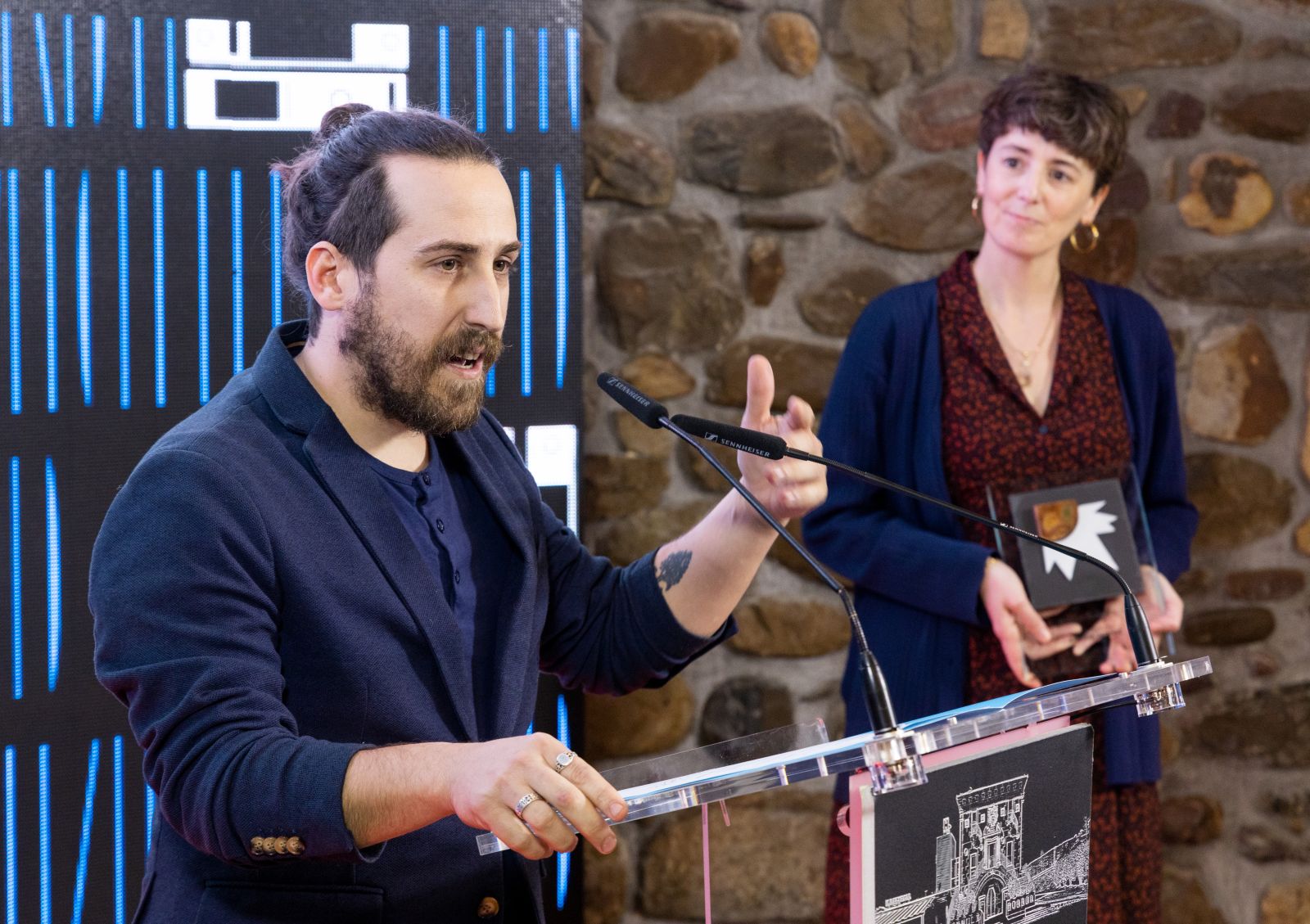
Press: Zugazart
Drawings are often taken as something childish. The reader does not consider it to be a reader. However, many critically draw the tip of the pencil, often from humor, but topical issues.
Unai Iturriaga started in June 2019 the Zugazart firm in the Gara newspaper and have rewarded the trajectory of these four years. Labor strikes, attacks on the Basque Country, Enrique Maya, bertsolarism, Basque political prisoners, police, decadence of Osakidetza, hand of Irulegi, Palestine, Ukraine, Brazil.. there are many and many different actions that it represents in black and white. “With those who deserved rigor and wisdom, with those who needed with affection and tenderness,” Iturriaga himself wrote as a recognition of the trajectory of his predecessor, to whom we can also apply these words.
He has confessed that depending on inspiration and the issues that interest him, he has “streaks”, but he is grateful for the prize: “By chance I had to be explaining to others what I do and what I do, when I left a meeting, and it is a pleasure to receive this recognition of our universe.”

Hearing: (Min)bizi podkasta
It is a material created to leave the medical consultation and offer support and solidarity to those who feel lonely and lost, through the voices, desires and bodies of the women who have known themselves in that place. “We have to normalize cancer, there are many of us who have come by, and we have to look away and look at the patient and ask him what he needs,” explains Olatz Mercader of the Iñurri association.
Those diagnosed with the disease are given windows of choice so that everyone decides how they want to go through this painful life process. “We miss the material that women made of our heads and our bodies and in Basque, and we want to offer it to others,” explains Mercadona. In the motor group there are four, “but behind there is a whole tingling, and without the work and support of all those voluntary ants you would not have heard, you podcaste, so this prize is for all of them,” he stressed.
People and realities uncomfortable for society bring mic and talk about the pains and fears we want to get away from. “Faced with those who want to dye and infantilize cancer, especially that of women, we want to provide resources to those who have touched him to pass this brown to make it a little easier.”
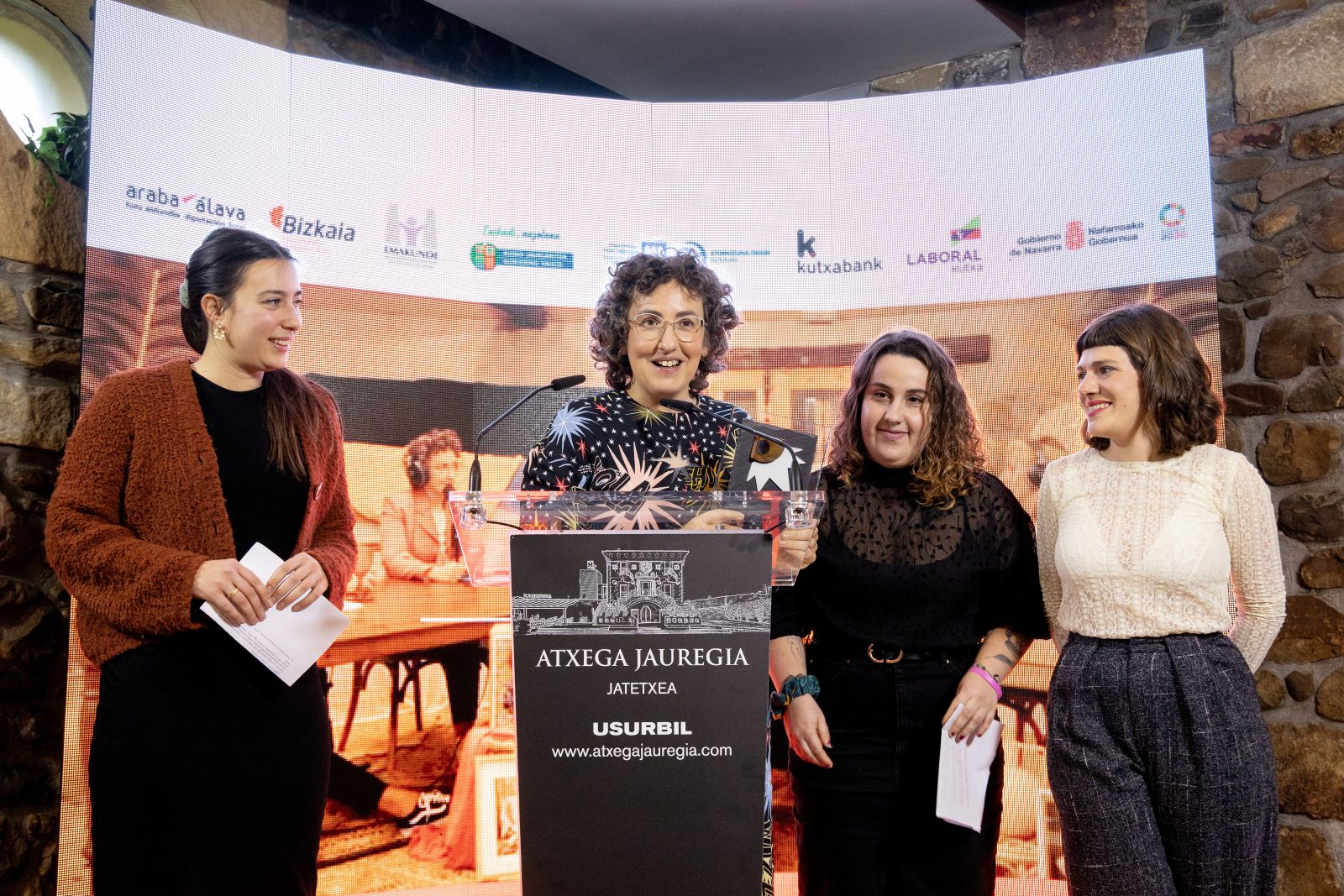
Internet: communities Euskal Mastodon
Social media has revolutionized the world of communication. Citizens have become communicators, which allows us to know immediately what has happened in any corner of the world with direct actors and witnesses. Txio is here and there, but the bird has been bought by the world's second richest person, and this year we have seen that the glass cage is getting narrower, as the "transparent" colour bars have become apparent.
In the year that the bird has become the forage of the tip of the right, in the zoo of social networks we have met another animal, the Mastodon that some Basque free-software militants had already launched since 2018. “We saw a lack, the need for a social network that worked in Euskera,” says Yaiza Arrizabalaga (which is at the base of Izarkom) and Dabid Martinez mastodon.eus (Azkue Foundation, Iametza, Laborategia.eus, Fundación PuntuEUS and Canal Talaios are at the base of the property.
This social network is decentralized, without advertising, and there are two communities in Basque that allow us to live all year in Basque. “It’s very difficult to change people’s inertia, but little by little you see people’s willingness to do different things,” Arrizabalaga said. “We believe that other social networks, based on values and non-profit, are possible,” continues Martínez. Over 4,000 members make up the Basque community of Mastodon. Both communities are federated with each other, in a good environment, and the prize is for both, for the whole community.
.jpg)
Campaign: Exams in Basque
Adolescents are the protagonists of the first line of the campaign, accompanied by parents and teachers. The struggle for the right to pass exams in Basque in Seaska dates back to six years, but the hardening of the attitude of the French Minister of Education, Blanquer, has led the ikastolas of the continental Basque Country to suffer significant delays and has been reinforcing the mobilization and reaching a great impact.
It is not a claim, but alternatives are emerging until the basic demands they make are met. “We have a committee open to parents, workers and members of the Seaska office, and we reflect and take a participative look at the different axes of work: preparing alternative amendments with the support of the Basque College, for example,” says Professor Mañolo Espellet.
The prize is aimed at students and fellow travellers who struggle year after year to make their descendants more lucky and unable to do so. “This Gureta prize is a recognition of the whole of Euskal Herria, a source of motivation and an opportunity to encourage the Euskaltzales of the seven territories to the giant mobilization that we are preparing for the spring,” he recalls.
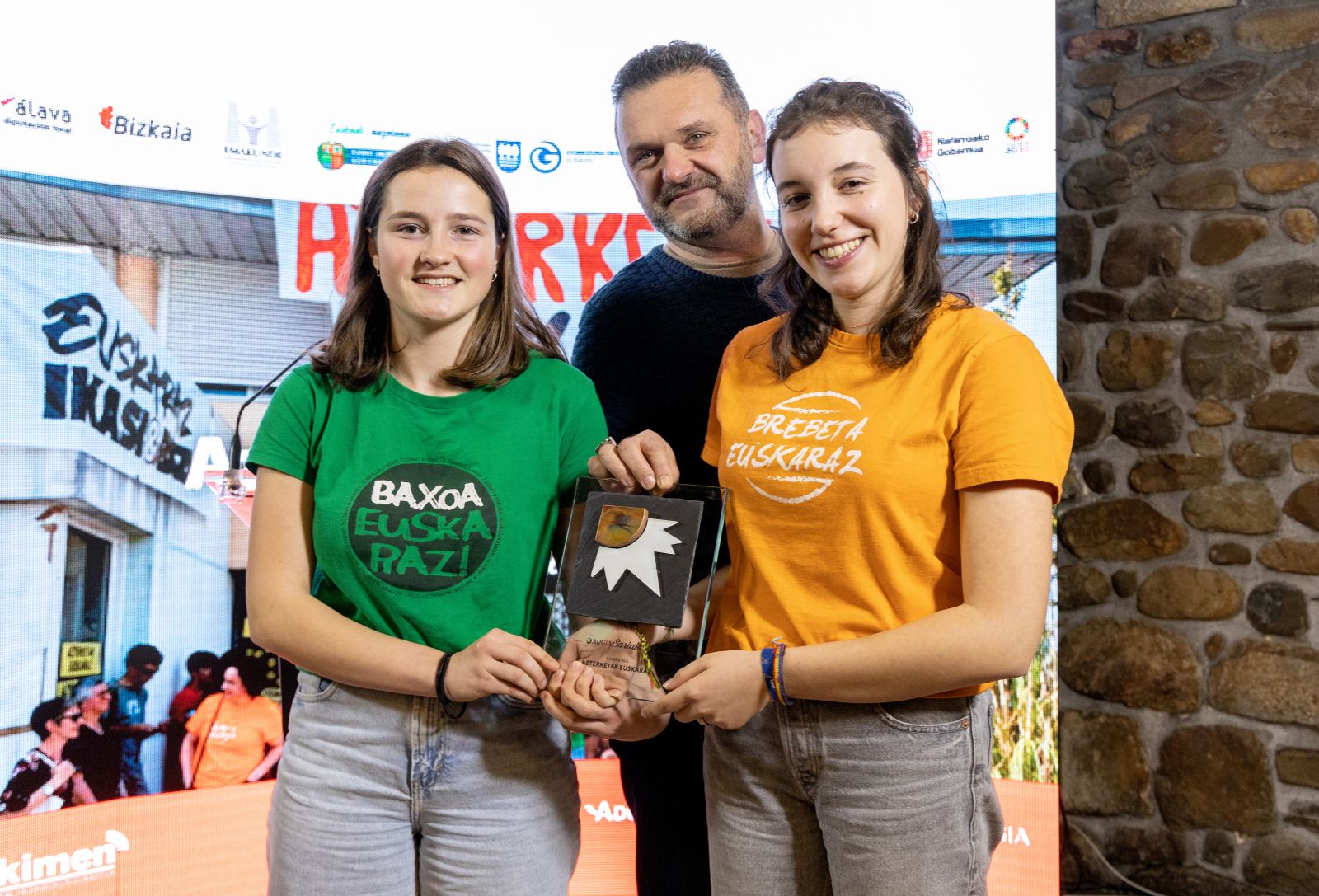
Meritorio: Oihana Goiriena
Journalist Pablo González is going to serve a year as a prisoner in Poland, half caught by a perfect storm. Captivated without trial, he is kidnapped without substantiated evidence against him and the communicant has been left incommunicado in the impossibility of public defence.
Friends and family have not kept their arms crossed, and above all we have seen Oihana Goiriena, Paul’s wife, denouncing injustice there and here. Be it in the big and small media, in Parliament and in cheese shops, claiming her husband’s freedom in all necessary places. Counting on what has happened, conveying strength and dignity, defending free journalism, and remembering to this trade that lately we see so deeply immersed in economic and political elites that its beauty is in honesty.
“Paul, considering where and in what situation he is, is OK, even if he has slimmed down a lot,” he says and continues: “We are now waiting for his next sight at the end of February, waiting for the judicial response.” Soon he will spend a year in jail and they will take advantage to launch the next campaign, remembering that the Free Paul association was created by his neighbors and from there they work, the crowdfunding campaign is also underway.
“The prize was a great surprise, but we took the opportunity to reclaim freedom of expression and committed journalism,” Goiriena said. The prize has been because it has become the face of this struggle.
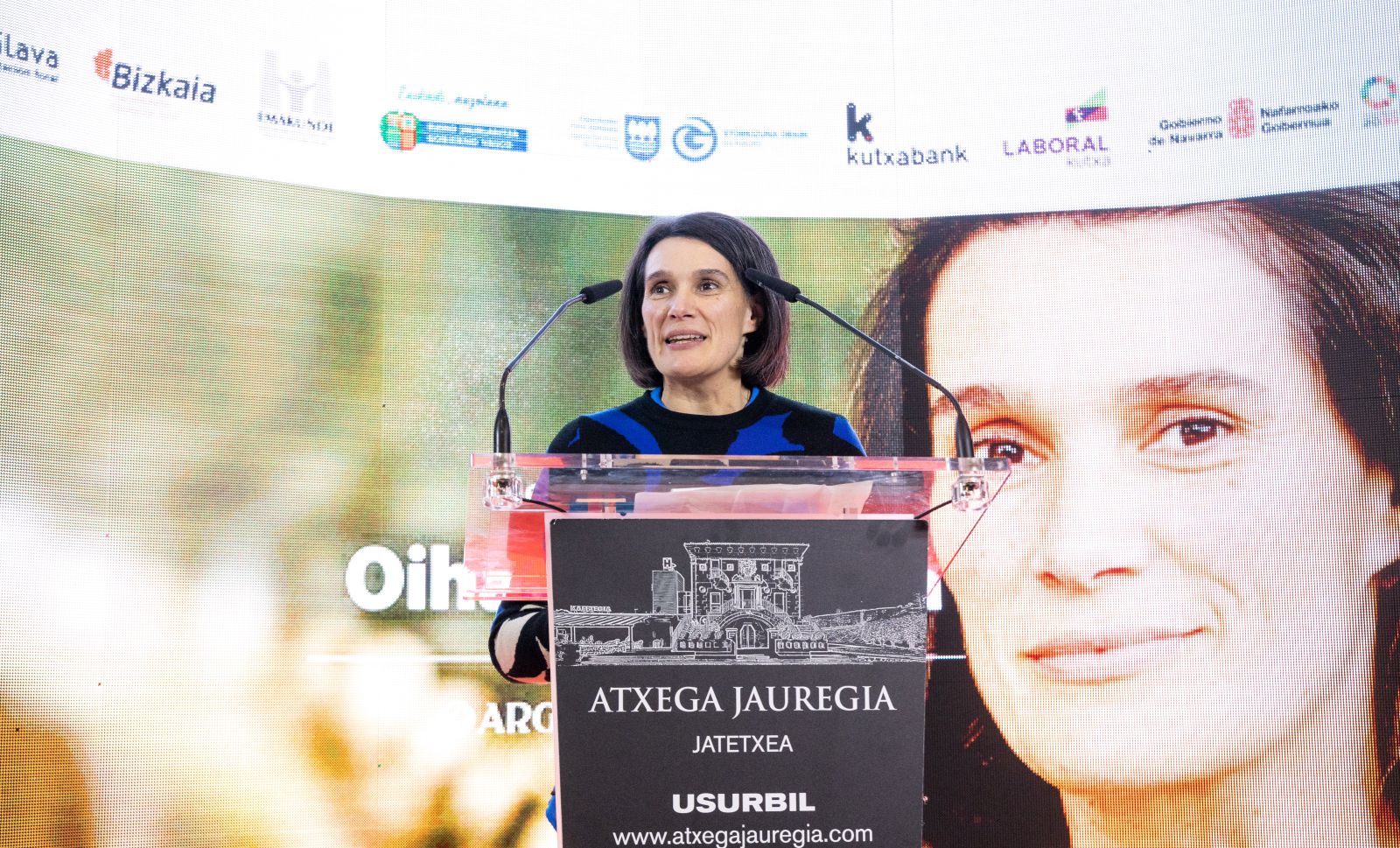
We thank the following sponsors of this event:
- Diputación Foral de Álava
- Provincial Council of Bizkaia
- Emakunde
- Basque Government, Department of Culture and Linguistic Policy
- Provincial Council of Gipuzkoa
- Kutxabank
- Labor Fund
- Government of Navarra. Euskarabidea, Instituto Navarro del Euskera